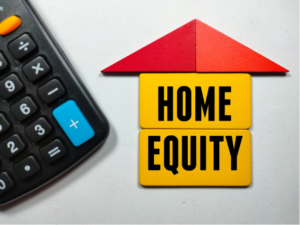
What is a Secured Loan?
In Canada, secured loans play a significant role in the financial system, but what are they exactly? Secured loans are loan agreements in which the borrower pledges an asset as security. The lender uses this collateral as a safety net. The lender has the right to seize the asset or collateral in order to recoup their losses if the borrower is unable to repay the loan.
Compared to unsecured loans, such as credit cards or personal loans, where the lender only depends on your promise to repay, this idea is very different. Unsecured loans, which lack collateral, usually carry higher interest rates to compensate the lender for the increased risk.
With a secured loan, the lender has more wiggle room to offer lower interest rates, bigger loan amounts, and more flexible repayment terms because they have this additional security. Because of this, secured loans may be a desirable choice when taking out a big loan to fund important investments or purchases. You as the borrower, however, should keep in mind that the risk is higher because, should you be unable to make the repayments, you will have to forfeit your collateral, which could include your house, vehicle, or other valuables.
Types of Secured Loans in Canada
Mortgage Loans
The most well-known kind of secured loan is a mortgage loan. The house you are purchasing functions as collateral when you take out a mortgage. Mortgage lenders have the right to foreclose and seize your home if you don’t make your payments on time.
Car Loans
Car loans are another popular type of secured loan. When you borrow money to buy a car, the car serves as collateral, much like a mortgage. The lender may take back the car if you don’t make payments on your loan. Canadians who need a car but are unable to pay the full cost up front usually opt for car loans.
Secured Credit Cards
One special kind of secured loan is a secured credit card. They are especially useful for building or restoring credit. In this case, the deposit you make with the lender typically serves as your credit limit. The lender may keep your deposit if you don’t pay your bill. People who want to raise their credit score or who have a short credit history often make use of these cards.
Home Equity Lines of Credit (HELOC)

With a home equity line of credit (HELOC), the equity in your house acts as collateral. It functions similarly to a credit card in that you can borrow up to a predetermined amount, pay it back, and then borrow again. HELOCs come with the risk of losing your house if you are unable to make the payments, but they also offer flexibility and lower interest rates than unsecured lines of credit.
LTV Ratio
The loan-to-value (LTV) ratio is one of the key ideas in secured loans. It is the ratio of the loan amount to the value of the collateral. For example, if you borrow $80,000 against a $100,000 home, your LTV ratio is 80%. Lenders prefer lower LTV ratios because they reduce their risk. A higher LTV ratio indicates that the lender is taking on more risk, which may affect the loan terms, including the interest rate.
Benefits of Secured Loans
Lower Interest Rates
The fact that secured loans often have lower interest rates than unsecured loans is one of their biggest advantages. Collateral lowers the lender’s risk, which usually translates into cheaper interest rates for the borrower.
Higher Borrowing Limits
Lenders are generally more comfortable giving out larger loan amounts because secured loans are backed by collateral. This is especially helpful for major purchases like buying a house or a car, where you might need to have access to a sizable amount of cash.
Risks of Secured Loans
Possibility of Losing Collateral
The possibility of losing the asset you pledged as collateral is the biggest risk involved with a secured loan. The lender has the right to take possession of the collateral if you are unable to fulfill your repayment obligations. For a mortgage or HELOC, this can mean losing your house; for a car loan, it could mean losing your car.
Impact on Credit Score and Financial Stability
Your credit score may suffer if you are unable to repay your loan. This can affect your future loan eligibility.
Limited Flexibility in Financial Crises
Secured loans often include large sums of money and long-term commitments. Meeting these obligations can be difficult when faced with financial difficulties, such as a job loss or major unforeseen expenses. Because collateral is involved, restructuring or negotiating secured loans can be more complicated than unsecured debts.
Choosing the Right Secured Loan

Assessing Interest Rates and Terms
The loan’s interest rate and terms are crucial. Check rates offered by various lenders to determine which is the best deal. A longer loan term may result in lower monthly payments but higher interest over the course of the loan, so keep that in mind as well.
Considering Your Financial Situation
Select a loan based on your financial circumstances and goals. Make sure you have a plan to meet your repayment obligations without experiencing undue strain, and that the monthly payments are manageable within your budget.
Reading the Fine Print
Read all terms and conditions carefully and make sure you understand them before signing any agreements. Never be afraid to ask the lender for clarification if something is unclear.
Conclusion
Imagine juggling multiple unsecured debts with secured debt, it can become overwhelming for you to handle alone. This is why EmpireOne Credit is here to assist you in shedding the weight of debt. You can speak with our debt experts to get tailored advice. Your debt can be reduced by up to 80%, and interest will stop immediately. Call us at (416) 900-2324 to schedule a free consultation with us. Being debt-free feels good!





